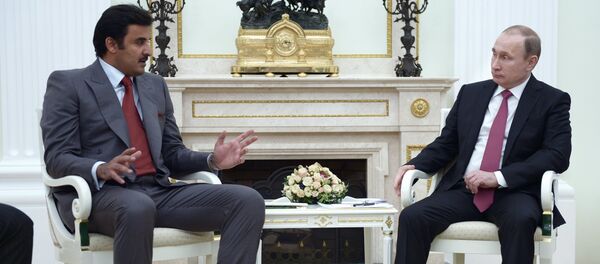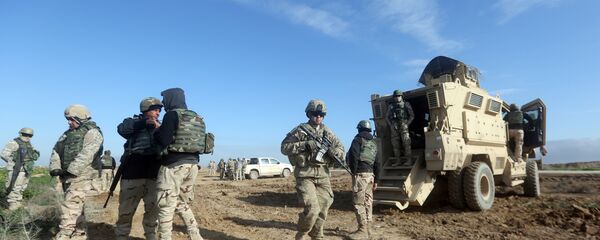Today with permanent US and British bases in Bahrain and French military facilities in the UAE, Turkey is going to follow Washington’s example, establishing a base in Qatar.
The new outpost will allow Turkish troops to participate in military operations in the Red Sea, Northern Africa, and the Persian Gulf. Thus, for the first time since 1950 the Turkish navy will have access to the Pacific.
No doubt, Turkey’s direct involvement in fixing Middle East issues was authorized by both the US and NATO. They are not ready to raise the level of cooperation with the Gulf Cooperation Council, including signing a collective security agreement. At the same time, bilateral agreements between the US and separate Gulf nations accommodate their mutual interests, according to the article.
One can learn from history that Qatar should be grateful to the Turks. Back in the 19th century, the Ottoman Empire helped Qatar build its own national identity, different from Saudi Arabia. What is more, Turkey and Qatar have similar approach to terrorists groups and such movements as the Muslim Brotherhood.
"One of the main reasons why Qatar singed the agreement with Turkey is to expand and diversify its security tools," the author wrote. Such an agreement is usually based on the principle of collective defense.
In fact, the agreement proves that Turkey and Qatar are closely cooperating in politics and joint defense, according to the article.
The initiative, according to the article, also proves that the US has intensified the role of its Middle East allies in the field of collective defense. Washington’s pivot to Asia does not presume that US troops will be withdrawn from the Gulf. The point is that the US wants to share regional security costs with its allies.
"The British military base in Bahrein, a French base in the Emirates, and a Turkish one – in Qatar – they are all parts of US strategy to intensify the role of its allies to improve the security environment in the Gulf region," the author wrote.
The current US strategy in the Middle East is reminiscent of the Nixon-Kissinger doctrine in the Cold War era. Shortly after the end of war in Vietnam, Washington had neither the willingness nor the resources to deploy troops to other regions. Instead, the US used its regional partners like Iran or Saudi Arabia to pursue and secure its interest in the Middle East.
"It is clear that currently the security regime in the Gulf cannot protect all the nations, while Iran and Iraq are totally excluded," the article read.
A Turkish base in Qatar is unlikely to contribute to a versatile security system in the Gulf region, and at the same time it will not be a threat for Iran.
The region needs a consistent security system that will not involve foreign military forces and will be based on cooperation between regional nations, the article read.
The current security regime is built on the balance of power, but it is unable to maintain stability and order in the long-term perspective.
"It is more like a zero-sum game. Within the existing regime, each player is skeptical about cooperation, seeking to strengthen its own capabilities and to weaken its rivals," the author wrote.





